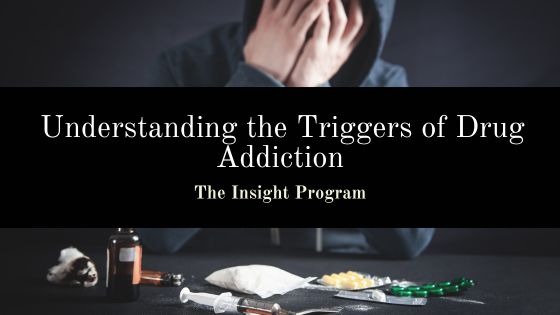Drug addiction is a complex condition characterized by compulsive drug use despite harmful consequences. To effectively combat addiction, it is crucial to understand the various triggers that lead individuals to start using drugs or to relapse after periods of sobriety. Recognizing these triggers can empower individuals and their support networks to develop strategies to avoid or manage them, fostering long-term recovery.
1. Stress and Anxiety
Stress is one of the most common triggers for drug use and relapse. The pressures of work, relationships, financial difficulties, and other life challenges can lead individuals to seek relief through drugs. Substances like alcohol, opioids, and benzodiazepines can provide temporary relief from stress and anxiety, creating a cycle of dependence. Learning healthy coping mechanisms, such as exercise, meditation, or therapy, can help manage stress without resorting to drugs.
2. Emotional and Psychological Trauma
Emotional and psychological trauma, whether from childhood experiences, abuse, or significant life events, can be a powerful trigger for drug addiction. Individuals may use drugs to numb the pain associated with trauma or to escape from disturbing memories and emotions. Addressing these underlying issues through trauma-informed therapy and support groups can be crucial in breaking the cycle of addiction.
3. Environmental Cues and Social Situations
Environmental cues and social situations play a significant role in triggering drug use. Being in places where drugs are readily available or associating with friends who use drugs can create strong temptations. The sight, smell, or even sounds associated with drug use can trigger cravings. Avoiding high-risk environments and building a supportive, drug-free social network can reduce these triggers.
4. Mental Health Disorders
Mental health disorders, such as depression, bipolar disorder, and schizophrenia, often co-occur with drug addiction. Individuals with these conditions may use drugs as a form of self-medication to alleviate symptoms. However, this can exacerbate both the mental health disorder and the addiction. Integrated treatment approaches that address both addiction and mental health can provide a more effective path to recovery.
5. Boredom and Isolation
Boredom and isolation can lead individuals to experiment with drugs as a way to pass time or alleviate feelings of loneliness. The lack of engaging activities and meaningful social connections can make drug use appear more attractive. Encouraging participation in hobbies, community activities, and social groups can provide alternative sources of fulfillment and connection.
6. Genetic and Biological Factors
Genetic and biological factors can predispose individuals to drug addiction. Research has shown that genetics can account for about half of a person’s susceptibility to addiction. Additionally, changes in brain chemistry caused by drug use can create powerful cravings and dependence. Understanding one’s genetic risk can prompt earlier intervention and personalized treatment approaches.
7. Peer Pressure and Social Influence
Peer pressure, especially among adolescents and young adults, is a significant trigger for drug use. The desire to fit in, gain acceptance, or emulate admired individuals can lead to experimentation with drugs. Education about the risks of drug use and fostering strong self-esteem can help individuals resist peer pressure.
8. Availability and Accessibility
The availability and accessibility of drugs can influence the likelihood of use. Easy access to substances, whether through social networks or local markets, increases the temptation to experiment or relapse. Policies aimed at reducing the availability of drugs, along with community support programs, can help mitigate this trigger.
Conclusion
Understanding the triggers of drug addiction is essential for developing effective prevention and treatment strategies. By recognizing and addressing the factors that lead to drug use, individuals and their support systems can better navigate the challenges of addiction. Building resilience through healthy coping mechanisms, supportive relationships, and comprehensive treatment plans can pave the way for lasting recovery and a drug-free life.

